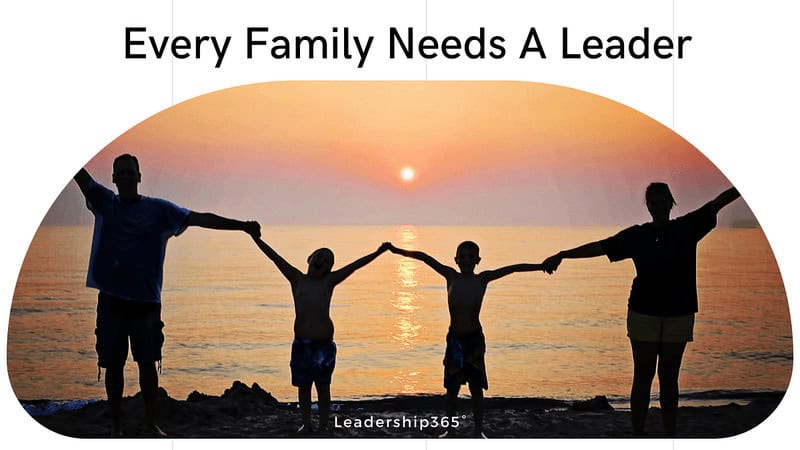Being the first-born or an only child comes with its own set of unique challenges. Unlike those who have older siblings to pave the way, first-borns and only children often find themselves in uncharted territory, setting the standards for those who follow. They are often seen as the responsible ones, the trailblazers, and the leaders in their families.
But this role isn’t without its struggles. From the weight of parental expectations to the solitude of having no one to share familial experiences with, these children face a range of issues that can shape their personalities and life trajectories.
1. High Parental Expectations

First-born or only children often face immense pressure to meet high parental expectations. Parents may see them as the flag bearers of family dreams. This means they must excel academically and socially, often pushing beyond their limits. These expectations can lead to stress and anxiety as they strive for perfection.
The pressure to succeed can sometimes stifle their creativity and individuality. It’s crucial for these children to communicate openly with their parents about their aspirations and limitations. Balancing personal goals with familial expectations is key to a healthy development.
2. Role of the Family Leader

First-borns often take on the role of family leaders, guiding their younger siblings through various challenges. This responsibility can instill qualities of leadership and organization but can also be burdensome. Young leaders may struggle with the weight of these responsibilities, leading to feelings of isolation.
Balancing leadership with personal growth is a delicate task. They must find time to focus on their own needs and ambitions. Encouraging independence in siblings can ease this burden, allowing first-borns to explore their own paths with less pressure.
3. Loneliness and Isolation

Loneliness is a common challenge for only children who lack siblings to share experiences. This can lead to feelings of isolation, as they yearn for companionship within the family unit.
While they may have friends outside, the absence of a sibling bond can be keenly felt. Parents can help mitigate this by fostering environments for social interaction. Encouraging participation in group activities or community events can help only children build strong social connections, offering them the companionship they often miss at home.
4. Pressure to Be a Role Model

Being a role model is a natural expectation for first-borns, who are often seen as the standard-bearers for their younger siblings. This expectation brings its own set of challenges, as they must navigate their own journeys while setting examples.
Balancing personal aspirations with the responsibility of being a role model can be daunting. They must learn to manage this dual role, ensuring they pursue their dreams while providing guidance. Open family communication is essential to alleviate some of the pressure, allowing them to thrive without feeling overwhelmed.
5. Sense of Responsibility

First-borns and only children often develop a strong sense of responsibility early in life. This trait can be beneficial, leading to success in career and personal life. However, the constant burden can lead to burnout.
Learning to delegate and share responsibilities is crucial. It allows them to maintain their well-being while continuing to excel. Families can support by recognizing achievements and ensuring that responsibilities are age-appropriate. Prioritizing self-care and seeking support when needed can prevent the adverse effects of excessive responsibility.
6. Fear of Failure

The fear of failure is a significant hurdle for first-borns and only children. With high expectations, they may develop an aversion to risk-taking, fearing the consequences of not meeting standards.
This fear can limit their growth and opportunities. Embracing failures as learning experiences is vital. Encouraging a growth mindset helps them view setbacks as stepping stones. By reframing failure positively, they can overcome their fears and pursue goals with confidence, enriching both their personal and professional lives.
7. Need for Perfection

Perfectionism is a common trait among first-borns and only children, often driven by the desire to meet high standards. This pursuit of perfection can lead to stress and dissatisfaction, as they may feel that nothing is ever good enough.
Understanding that perfection is unattainable can help alleviate this burden. Embracing imperfection and focusing on effort rather than outcome can foster a healthier mindset. Encouraging self-compassion and setting realistic goals can reduce stress, allowing them to appreciate their achievements without undue pressure.
8. Parental Overprotection

Parental overprotection is a common challenge for only children, and sometimes first-borns, who are often seen as the family’s precious gem. This can lead to sheltered childhoods, limiting their independence and risk-taking abilities.
Encouraging autonomy is crucial to overcoming this challenge. Gradually increasing responsibilities and allowing safe exploration can build confidence and resilience. Parents should focus on empowering their children, providing them with the tools to navigate the world independently, while still offering support and guidance when needed.
9. Limited Peer Interaction

Only children often face limited peer interaction, primarily interacting with adults or much younger children. This can affect their social development, as they might struggle to relate to peers.
Encouraging participation in group activities can enhance their social skills and help them form meaningful friendships. Parents can facilitate playdates and enroll them in extracurricular activities where they can interact with others their age. Building a supportive social circle is essential for their emotional and social growth, providing a sense of belonging and companionship.
10. High Self-Expectations

First-borns and only children often set high expectations for themselves, mirroring the standards set by their parents or society. While ambitious goals can drive success, they can also lead to disappointment and self-criticism.
Balancing ambition with self-acceptance is essential. Recognizing and celebrating small achievements can build self-esteem. Encouraging a mindset that values progress over perfection can help them navigate life’s challenges. Families can support by reinforcing the idea that effort and perseverance are as important as outcomes, fostering a healthy attitude towards personal growth.
11. Struggle for Independence

Struggling for independence is a common theme for first-borns and only children, who are often under parental scrutiny. This can hinder their ability to make independent decisions and assert their autonomy.
Encouraging independent decision-making and providing opportunities for self-discovery are vital. Parents should gradually loosen control, allowing them to navigate challenges on their own. This fosters confidence and prepares them for adulthood, ensuring they grow into self-reliant individuals capable of making informed choices while still feeling supported.
12. Balancing Family and Personal Life

Balancing family responsibilities with personal life is a juggling act for first-borns and only children. They may feel torn between familial duties and personal aspirations, often sacrificing their own needs.
Open communication with family can ease this struggle, allowing them to express their desires and negotiate responsibilities. Setting boundaries is essential to ensure they have time for personal growth and leisure. Achieving balance requires prioritizing self-care, ensuring they can fulfill family roles without compromising their own happiness.
13. Identity and Self-Worth

First-borns and only children often grapple with issues of identity and self-worth. Defined by their roles in the family, they may struggle to carve out their own identities. This can impact their self-esteem and sense of self.
Encouraging self-exploration and celebrating individuality is key. Families should support their pursuits outside of traditional roles, allowing them to discover their passions and strengths. Building a strong sense of self-worth involves embracing one’s unique traits and contributions, fostering confidence and resilience in the face of challenges.

Well, hello there!
My name is Jennifer. Besides being an orthodontist, I am a mother to 3 playful boys. In this motherhood journey, I can say I will never know everything. That’s why I always strive to read a lot, and that’s why I started writing about all the smithereens I came across so that you can have everything in one place! Enjoy and stay positive; you’ve got this!

